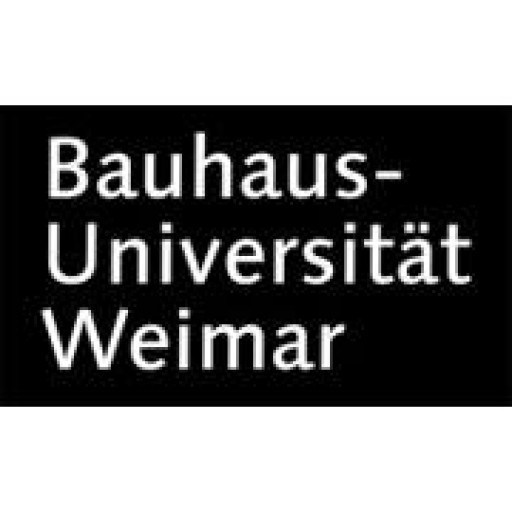Photos of university / #universitaet.tuebingen
Applied and Environmental Geoscience (AEG) at the University of Tübingen offers students a comprehensive education in the dynamic field of earth sciences, focusing on understanding and managing Earth’s natural resources and environmental challenges. This interdisciplinary program is designed to equip graduates with the theoretical knowledge and practical skills needed to analyze geological processes, assess environmental impacts, and develop sustainable solutions for issues such as climate change, natural hazards, and resource management.
The curriculum integrates core topics in geology, geophysics, hydrogeology, and geochemistry, alongside courses in environmental science, data analysis, and GIS technologies. Students gain hands-on experience through laboratory work, field excursions, and research projects that explore geological formations, groundwater systems, and environmental monitoring techniques. The program emphasizes the importance of multidisciplinary approaches, combining natural sciences, technology, and social sciences to address complex environmental problems effectively.
Students have opportunities to participate in cutting-edge research projects, collaborate with industry partners, and engage with local communities to develop practical solutions for real-world challenges. The program prepares graduates for careers in environmental consulting, resource management, hazard assessment, and scientific research. It also provides a solid foundation for pursuing advanced degrees in geosciences or related disciplines. The University of Tübingen’s Applied and Environmental Geoscience program is committed to fostering an environmentally responsible mindset while promoting innovative research and sustainable practices to protect our planet for future generations.
Educational organisation
The MSc programme lasts four semesters and requires successful completion of six compulsory and eight elective modules as well as the Master's thesis.The COMPULSORY MODULES cover key topics of environmental geoscience and additionally include modules that allow students to gain methodological, conceptual as well as practical skills for scientific research in the field of environmental geosciences in close interaction with staff and research groups. Compulsory modules are:
Hydrogeology, Aquatic and Environmental Chemistry, Environmental Modelling 1, Scientific Practice 1, Scientific Practice 2, Scientific Presentation
The ELECTIVE MODULES give students the opportunity to individually complement these lectures with topics of their interest. The following three AREAS of SPECIALISATION are offered, each requiring a special suite of three modules:
1. HYDROGEOLOGY: Applied Hydrogeology, Contaminant Hydrogeology, Geotechnical Engineering
2. ENVIRONMENTAL PHYSICS AND ENVIRONMENTAL MODELLING: Environmental Modelling 2, Case Studies in Environmental Modelling, Physics of the Atmospheric Boundary Layer
3. ENVIRONMENTAL CHEMISTRY AND ENVIRONMENTAL MICROBIOLOGY: Environmental Microbiology and Geomicrobiology, Hydrogeochemical Modelling, Analytical Environmental Chemistry
The remaining credits can be obtained by any combination of all offered elective modules:
Water Treatment, Case Studies in Environmental Geoscience, GIS and Remote Sensing, Environmental Modelling 2, Advanced Geophysics, Atmospheric Physics, Environmental Microbiology and Geomicrobiology, Laboratory Course Geomicrobiology, Analytical Environmental Chemistry, Environmental Isotope Chemistry, Lab Course Environmental Chemistry, Geotechnical Engineering, Contaminant Hydrogeology, Applied Hydrogeology, Geophysics, Numerical Methods in Environmental Modelling, Earth Processes, Environmental Risk Assessment
The MASTER'S THESIS PROJECT is spread out over two semesters and already starts in the third semester.
Study abroad unit(s)
Study units abroad are not part of the curriculum.Internships
Internships are not required.Forms of assessment
Modules are concluded with one or several examinations. Depending on the types of lectures in the modules, examinations can be written exams, project reports or presentations. Modules are generally comprised of lecture units along with exercises that can be included in the assessment.In total, 120 ECTS credits are needed to graduate: 36 ECTS credits for compulsory modules, 54 ECTS credits for elective modules, and 30 ECTS credits for the Master's thesis project.
Course objectives
The research-oriented MSc programme provides students with the ability to analyse and evaluate environmental problems in geosciences. AEG graduates are well-trained for jobs in environmental agencies, non-governmental organisations, and (re-)insurance companies covering costs of environmental risks and remediation.The key employers for graduates of the AEG programme are environmental consultancies working in:
- characterisation of sites (hydrogeology, geophysics, chemical and microbiological analysis)
- assessment of environmental risks
- management of water resources
- design and operation of remediation technologies
- modelling of flow and reactive transport in subsurface systems
Furthermore, the AEG programme is an excellent foundation for doctoral studies in programmes of earth sciences, environmental sciences, and environmental engineering.









